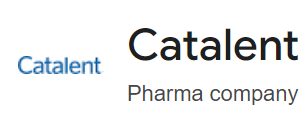
(Photo : catalent.com)
A coalition of unions, consumer advocacy, and public interest organizations has urged the Federal Trade Commission (FTC) to oppose Novo Nordisk's proposed $16.5 billion acquisition of Catalent Inc., citing concerns that the deal would harm competition in critical areas of the pharmaceutical industry.
The coalition, which includes groups like the American Federation of State, County and Municipal Employees (AFSCME), Consumer Action, and Doctors for America, argues that the proposed vertical acquisition will restrict patient access to life-saving medications and also reduce the innovation for competitors as their access to the Catalent might be limited .
In a letter addressed to FTC Chair Lina Khan, the coalition expressed concern about the impact this merger could have on the availability of drugs used to treat diabetes, obesity, and gene therapy treatments.
"We believe this transaction, if consummated, would be harmful to competition across various therapeutic areas and ultimately reduce patients' access to these vital treatments," the letter read.
The deal involves Novo Nordisk, a Danish pharmaceutical giant and leader in sales of GLP-1 drugs that are used to treat obesity and diabetes, and Catalent, one of the leading contract development and manufacturing organizations (CDMOs). Novo, currently holds 54% of the market share in North American market and Catalent operates 50 facilities globally that are critical for downstream companies engaged in the production of GLP- 1 injectables.
The merger has raised fears of "vertical foreclosure" that could limit competitors' access to Catalent's fill-finish services that could be monopolized by Nova if the deal gets through. Catalent has been involved in GLP-1 drug manufacturing since 2017 and has established itself as a "top-positioned CDMO" in this specialized area.
The coalition warns that future competition in the GLP-1 drug market could be stifled, as many other pharmaceutical companies-such as Amgen, AstraZeneca, and Pfizer-are working to bring their own GLP-1 drugs to market. However, the proposed acquisition threatens to block these companies from accessing the manufacturing expertise needed to launch their products.
"There is a real question of whether these future rivals to Novo will be able to secure the expertise to bring the product to market and have available and qualified capacity to manufacture these products when they commercially launch," the coalition, stated in the letter.
The unions also argue that the merger could also harm the growing gene therapy sector. Catalent plays a crucial role in the development and production of gene therapies, partnering with companies like Sarepta and Novartis. The letter warns that after the acquisition, Novo would have the "incentive and ability to delay collaboration with gene therapy rivals," potentially delaying the approval of life-saving treatments.
The coalition insists that there is no adequate remedy that could mitigate the anticompetitive effects of the merger, stating, "We urge the Commission to challenge this transaction to ensure that competition is protected and that consumers will have full access to treatments for these critical drugs and future therapies.
"This is not first time the proposed deal found opposition. Last week, U.S. Senator Elizabeth Warren, a Democrat, called on the FTC to look closely at the deal over similar concerns.
The petitioners have called on FTC to take decisive action to block the acquisition stating that allowing the deal to go forward would give Novo Nordisk too much control over the production of essential medicines, ultimately reducing patients' access to critical treatments and stifling future innovations in drug therapies.









